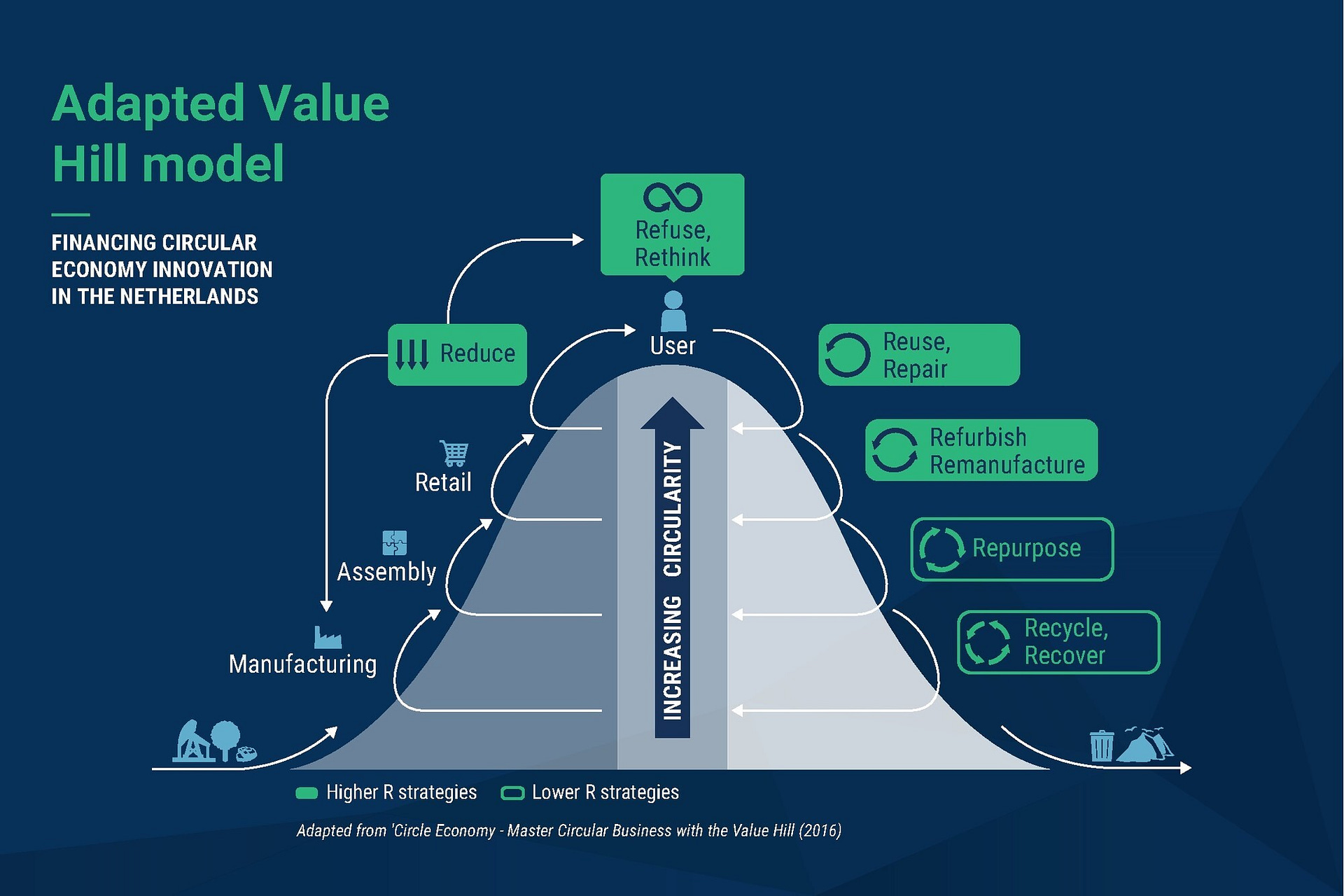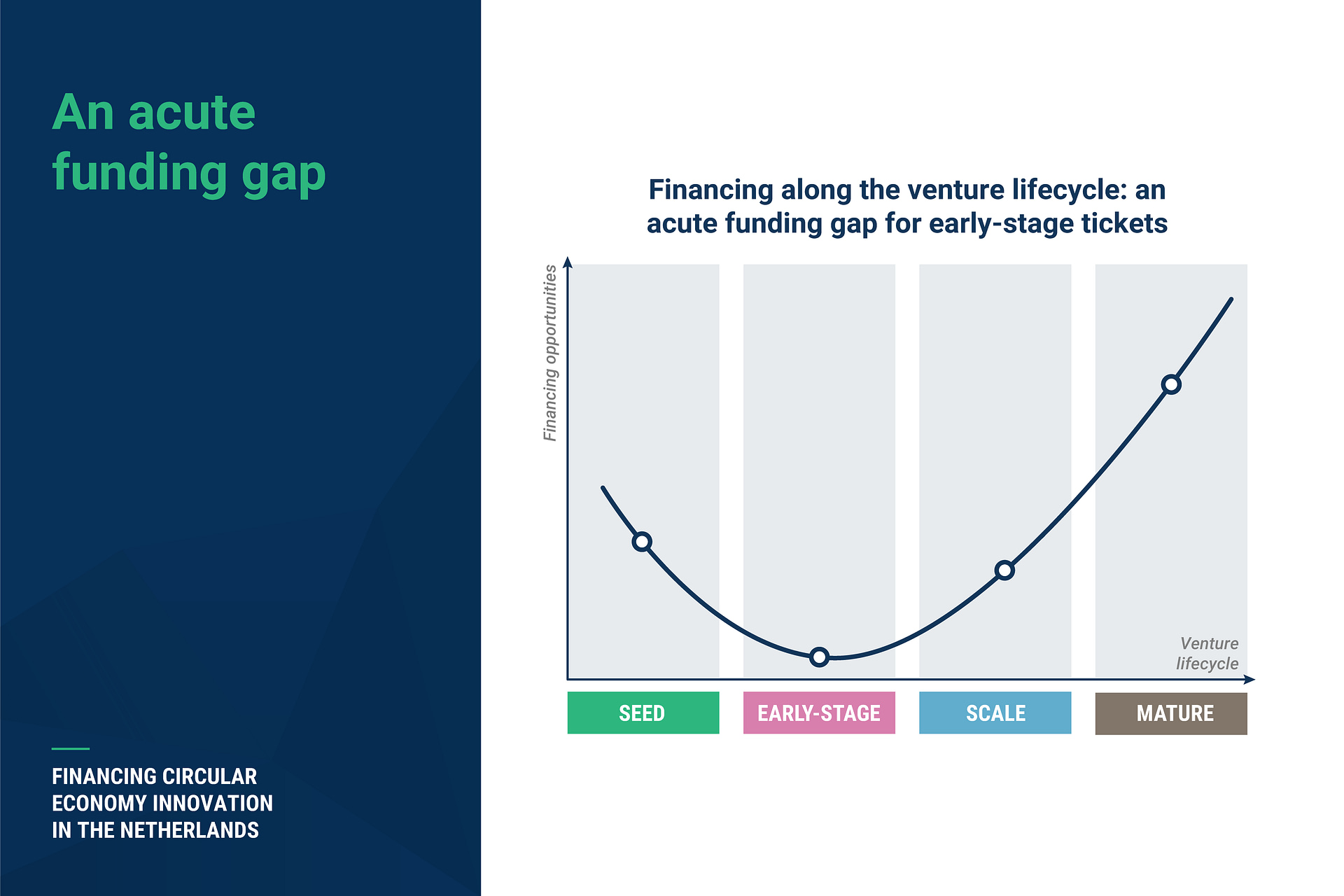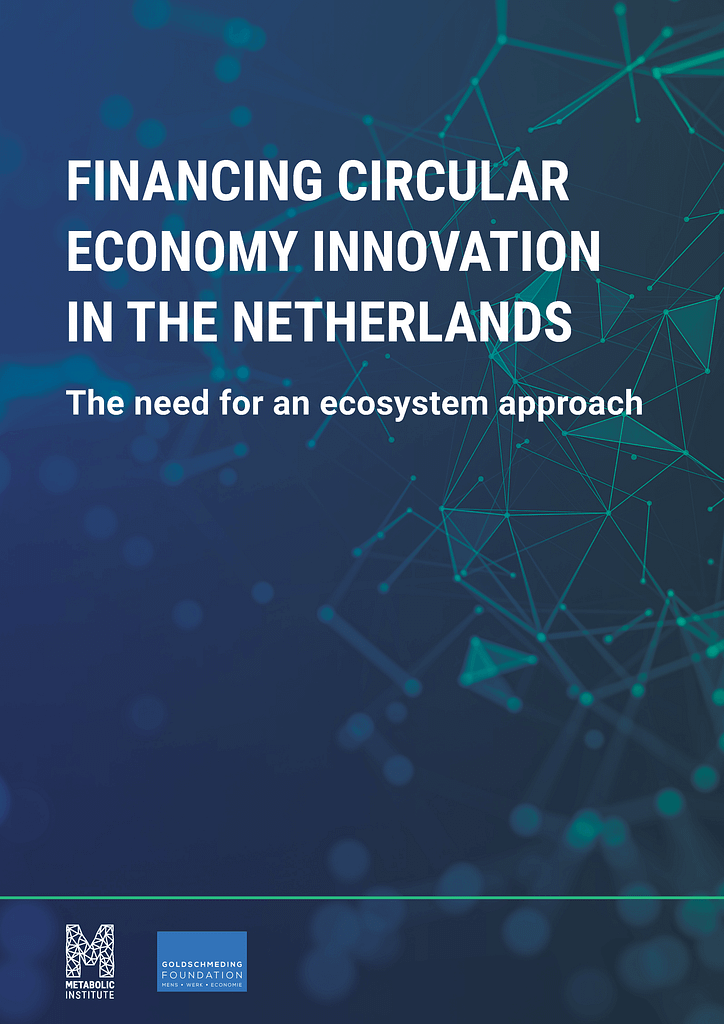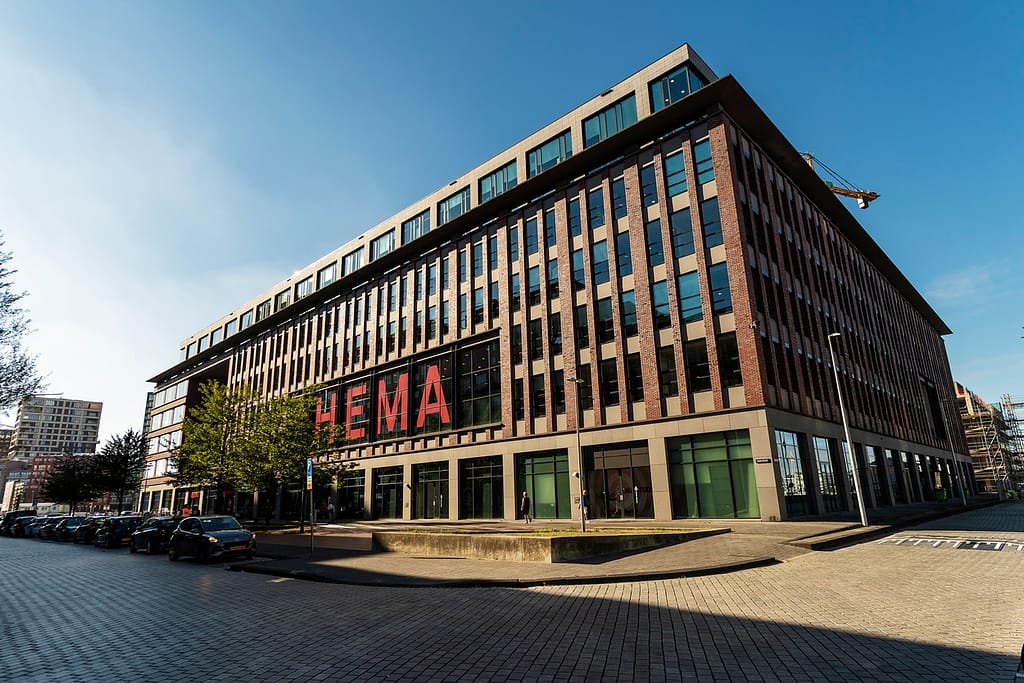Circular Innovation Ecosystem
Financing Circular Economy Innovation in the Netherlands
The circular economy is inadequately financed. Research conducted by Metabolic Institute identifies both barriers and opportunities for leveraging finance to achieve the circularity goals of the Netherlands. Early-stage ventures and ventures dealing in reduce, re-use, repair and refurbishment practices in particular struggle to get adequate funding. We propose an ecosystem approach to financing circular innovation, by means of setting up a Circular Innovation Ecosystem piloted with selected Dutch municipalities.
- Partners: Goldschmeding Foundation
- Date: February 2021
The Dutch circular economy financing landscape is not well understood.
In 2016 the Netherlands launched a government-wide programme aimed at achieving a fully circular, waste-free economy by 2050. To catalyse this transition, the financial sector has a pivotal role to play by providing financial incentives, regulatory frameworks, and business support schemes, yet this potential is still largely untapped. To address this challenge, Metabolic Institute assessed the systemic barriers to circular economy financing in the Netherlands, and identified key drivers to accelerate Dutch circularity ambitions through impact-driven finance.
Mapping the state of circular economy financing in the Netherlands.
We began by mapping the current circular economy funding landscape in the Netherlands and the key financiers and funds involved in order to consolidate best practices, key drivers, barriers, and priority gaps. We reviewed and consolidated 19 flagship reports published by leading knowledge institutes and financial institutions, and mapped 87 initiatives related to circular economy financing in the Netherlands and beyond. We then undertook 28 in-depth interviews with selected stakeholders, with representatives from Dutch municipalities, fund managers, public and private funds, innovation and acceleration programs, and think tanks.Barriers and opportunities for catalysing Dutch circular economy financing.
There is an acute funding gap for circular initiatives with the greatest potential for retaining value: Refuse, Rethink, Reduce, Reuse, Repair, Refurbish, Remanufacture, and Repurpose. These activities have the highest potential to increase the Dutch economy’s resource efficiency, lower its impacts, and provide high-quality employment opportunities. This gap is linked to the relatively nascent nature of the circular economy, and a lack of long-term and consistent track records against which investors can assess risks. This results in entrepreneurs focused on higher R innovations having difficulty in attracting early-stage funding.
To unlock financing for harder-to-finance, longer-term circular entrepreneurship and innovation, blended finance and impact-driven financing tools have immense potential.To support higher R circular innovations, we will also need deeper collaboration across the whole financial ecosystem: from financial institutions and investors, to economic boards and governmental agencies, and accelerators. We need a vibrant ecosystem that empowers entrepreneurs to scale their impact.
As such, we are working towards the creation of the Circular Innovation Ecosystem (CIE), a mission-driven investment network to fund, support, and enable an environment where circular solutions can thrive. Numerous Dutch cities have impressive track records when it comes to circular economy plans, but access to finance is one of their most significant barriers to delivering on these plans. To address this bottleneck, the CIE aims to support Dutch cities (and regions) in achieving their circularity targets, aiming not only to accelerate the circular transition, but to support regional recovery and employment strategies.






“We believe that circular innovation and job opportunities are created by financing circular entrepreneurs. But financing alone is not enough; we have to build a support system for entrepreneurs on an urban level. The ‘Circular Innovation Ecosystem’ is a first step towards guiding financiers, entrepreneurs and local governments to collaborate in this approach.”
Birgitta Kramer, Circular Economy Programme Manager at the Goldschmeding Foundation






